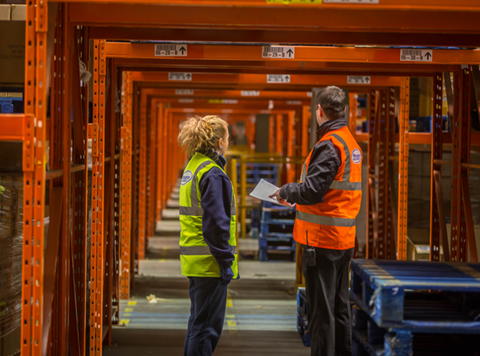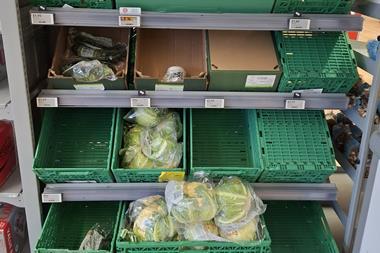
The food and drink industry’s ongoing struggles with labour shortages and skills gaps aren’t unique – many industries are in the same boat. But what is quite unique is our industry’s importance to the nation’s infrastructure.
The sector employs 4.2 million people, accounts for more than one in eight jobs, and – in one way or another – everyone who works in the food system plays a role in keeping the country nourished. If our industry fails, the country goes hungry.
To complicate matters further, the UK population is not only ageing, it’s growing, too. This means we have more mouths to feed in an increasingly complex world beset by challenges from a struggling economy, climate change, geopolitical tensions, and more.
Building a workforce for the future
The need to act is urgent, and it demands industry-wide attention. Only by working together can we create a workforce with the skills and capabilities to face those challenges and adapt to evolutions in tech, products and services.
But we face a battle for the hearts and minds of young talent. In recent research, we found 61% of young people have a passion for creative and service-led industries, but 19% do not realise they can pursue them in the food and drink industry. Nearly a third of that potential talent is slipping through our fingers. We must do more to raise awareness.
For our part, IGD has been actively engaging young people for well over a decade. In 2012, as the UK experienced high youth unemployment, we launched ‘Feeding Britain’s Future’, in collaboration with the Department for Work and Pensions. The programme supported young unemployed people in developing their skills and connecting with great careers in our industry. Through this work, over 150 businesses helped over 30,000 young people.
Attracting young talent
By 2014, youth unemployment had improved, but new challenges emerged. Insights told us careers support in schools was inconsistent, while research by the Education & Employment Foundation highlighted that young people who didn’t meet with employers at school were five times more likely to be ‘NEET’ – not in employment, education or training.
So, we evolved the programme to work with students in secondary schools, running careers workshops to inspire young people to work in food. Now our school programmes have trained over 130,000 young people and 90% of participants say our workshops helped them feel more prepared for work. Post-workshop, almost three-quarters (73%) said they would consider a career in food, up from 43% beforehand.
Ten years later, we launched the Mmmake Your Mark campaign: a cross-industry initiative designed to attract the next generation of talent to our industry by showcasing the careers on offer and educating young people, parents, and educators on why the industry should be a first-choice career destination.
At the end of the month our second annual Mmmake Your Mark campaign draws to a close, which has seen great engagement from businesses across the country. However, we can and must do better: we need more organisations to help us get the message out about the exciting breadth of career opportunities in food and drink.
Businesses must showcase the incredible careers available within the sector. If we join forces, we can do more than entice new talent – we can secure a thriving food system for decades to come.
Sarah McCarthy, head of employability programmes at IGD



















No comments yet